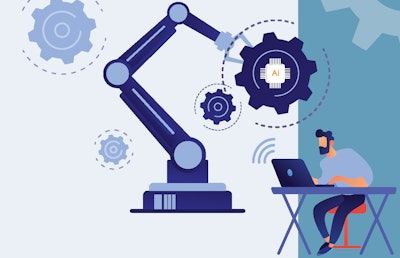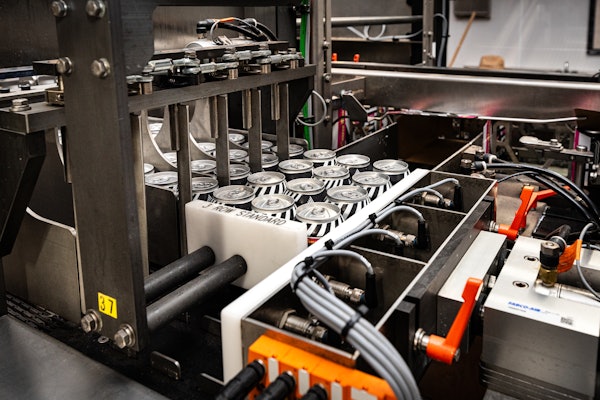Artificial intelligence (AI) is already making waves in packaging and processing for the various ways it may enhance current operations.
That’s according to PMMI Business Intelligence’s 2024 report, “Transforming Packaging and Processing Operations,” which details industry executives’ responses at the 2024 Top to Top Summit. Key themes that emerged from the discussions included the role AI can play in the integration of disparate systems, reducing complexity, enhancing productivity and reliability, and empowering workforces with training and support.
One recurring theme at the event’s roundtable discussions was the potential of AI to explore “unknown unknowns” about a company’s operations.
Integration of disparate systems
Using AI and cloud technology to facilitate communication between various systems can dramatically simplify processes, enhance operational efficiency, and reduce complexity. This came out as a strong point of interest during the summit.
Asked by one participant how AI technology can be used to integrate disparate systems on a packaging line from different suppliers, the presenter explained “it’s like translating from French to Chinese, Chinese from Italian, and so on.”
The presenter pointed to a previous project that had taken two years and around 16 engineers because of its complexity. However, AI allows such a project to be “done instantly in the cloud.”
Enhancing productivity and reliability
The discussions indicated a consensus about the potential of AI to improve productivity and reliability.
One company is using AI to “speed up the programming of robots, PLCs, vision inspection systems.” Rather than having an expert programmer on hand, “you can just tell the system what you want to do, and it can create that code for you,” the executive explained.
The role of AI in predictive maintenance was highlighted several times, with one table saying AI can “determine better operational conditions from the huge amount of data to make that data more actionable.”
Discussions also covered the potential of AI to optimize OEE data and analyze the inputs of processing or packaging equipment to “predict the outcome of what will happen if you change the supplier, material, or speed of this machine.”
Empowering the workforce
Discussions around using AI for workforce training and support suggest a shift toward leveraging AI to enhance human capabilities rather than replace them.
AI-driven tools can provide personalized training, assist in decision-making, and simplify complex data analysis. One table said using AI to set up queries for databases or a particular piece of code can “get you to 80 or 90%, and then let somebody manually finish it, to get it right.”
Tables proposed a series of application scenarios for AI, including OEMs using AI to develop a 24/7 remote customer service solution and using Microsoft's new copilot to prepare meetings or generate notes.
Others suggested using AI to create an in-house accessible training program comprising videos, documents, and data tuned “to a particular person’s level” and in their native language.
Exploring the unknown with AI in packaging and processing
A recurrent theme of the session was AI’s ability to reveal insights into previously unrecognized areas.
This aspect of AI could lead to breakthroughs in operational efficiency, product quality, and process optimization by uncovering hidden patterns and variables.
One success story that was linked to these “unknown unknowns” related to a beverage company having trouble making register on printed folding carton materials.
“By putting AI to work, we were able to identify a very unexpected variable, which was able to save that manufacturer $18 million a year of scrap,” a participant explained.
SOURCE: PMMI Business Intelligence: 2024 Transforming Packaging and Processing Operations
For more insights from PMMI’s Business Intelligence team, find reports including “2023 Building an Effective Talent Strategy for the Packaging Industry” and “2023 Sustainability and Technology – The Future of Packaging and Processing” at pmmi.org/business-intelligence.
Download the FREE report below.


























